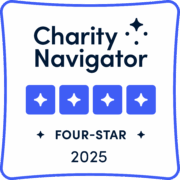The mission of Chelsea’s Hope is to improve the lives of those affected by Lafora disease and help accelerate the development of treatments.
Chelsea’s Hope Lafora Children Research Fund is an IRS 501(c)3 non-profit organization. EIN: 27-1008382
![]() Chelsea’s Hope c/o Dr. Donohue
Chelsea’s Hope c/o Dr. Donohue
976 Maywick Dr.
Lexington, KY 40504


Lafora Symposium 2023 in review
/by Christine KellyThe 8th Lafora Disease Science Symposium was held October 9-10th, 2023, in Bologna, Italy. It was the largest event yet, with more than 30 researchers, clinicians, and patient advocates gathered to share their expertise on Lafora Disease. The community joined worldwide to work toward improving treatment for Lafora patients.
Thank you to all the attendees
The team at Chelsea’s Hope was grateful to be able to meet in person and connect with our incredible partners and families who support our mission.
Families, you are why we exist. Reaching a cure for our children motivates our work daily, and we know you share that goal. We are thankful to be a part of a committed community worldwide that is fighting Lafora Disease.
Thank you to the fantastic hosts in Bologna from ISNB IRCCS. You made us all feel welcome, and we look forward to future symposiums in Italy.
We are immensely grateful to our partner organizations, whom we commit to continue connecting with to advance our joint fight against Lafora Disease.
Finally, to all attendees of the 2023 Lafora Symposium, thank you for joining us in Bologna! If you have any photos from the Symposium that you’d like to share, please upload them HERE. Anyone can view the photos there by clicking the link. With a Google Drive account, anyone can upload pictures, too. Use #LaforaSymposium23 on social media and tag us @chelseashopelaforacure!
Connecting with other families and hearing new data, research, and ideas from the Symposium speakers inspired a new level of hope in us as an organization. A key takeaway for us is that together, we can achieve more.
Together, we can fight Lafora.
Board Secretary Announcement
/by Riley HawkinsMeet the newest member of Chelsea’s Hope: Board Secretary, Meredith Williams!
Meredith Williams is a first-year graduate student in the Development, Disease Models, and Therapeutics Ph.D. program at Baylor College of Medicine in Houston, Texas. She earned two bachelor’s of science from the University of Kentucky, where she worked as an undergraduate research assistant in Dr. Matthew Gentry’s lab.
Her main research interests include neurodegenerative diseases, and she is especially passionate about rare disease research. You may recognize her from our social media; she volunteered at the 2022 Lafora Disease Science Symposium!
Meredith joined Chelsea’s Hope in September 2023 as the board’s secretary with the ultimate goal of raising awareness about Lafora’s Disease through improving intra-organization structure and communication.
We are so grateful to have her as our board secretary at Chelsea’s Hope.
Click here to learn about the members of our team.
Raise Awareness for Lafora Disease on Lafora Body Disease Day 2023
/by Christine KellyCreating awareness is key to more research, better support, and a brighter future for our kids with Lafora Disease. Keep reading to find out how you can join in.
We invite you to create awareness on October 1 by sharing your story, the stories of the Children of Chelsea’s Hope, educational posts, or encouraging others to watch the recent Fighting the Rare documentary. Check out our social media toolkit for ideas!!
This October 1, we’ll also be celebrating ICD-10 code G40.C, so there is a lot we can share about as a community online. You can also join the #FightLafora social media challenge or contact your local news networks. Families, please contact us if you would like support in sharing your story with press outlets.
Chelsea’s Hope began recognizing October 1 as Lafora Body Disease Day in 2021. This year would have been Chelsea’s 33rd birthday. She continues to inspire the work we do, including raising awareness about Lafora Disease.
#FightLafora Social Media Challenge
Want to join? Here are the steps:
+ you can also tag three friends to join the challenge to create awareness about Lafora.
Creating awareness about Lafora is one step to achieving our mission of improving the lives of those affected by the devastating rare disease and helping to accelerate the development of treatments. Thank you for raising your voice. Together, we can fight Lafora!
Announcing ICD-10 Codes for Lafora Disease
/by Christine KellyWe are thrilled to announce that newly designated, unique ICD-10 Diagnostic Codes for Lafora Disease will be effective on October 1, 2023.
Lafora progressive myoclonus epilepsy, or Lafora Disease, an ultra-rare neurodegenerative disorder affecting children, has been assigned code G40.C, falling under the G category of diseases representing nervous system disorders.
This development marks a crucial milestone for the Lafora Disease community since we had no specific code and, therefore, no way to accurately track the disease across healthcare systems. Until now, Lafora was grouped with other epilepsy diseases that are not as severe or complex. This made it difficult for doctors, insurance companies, and policymakers to understand the urgency and unique needs of Lafora patients.
G40.C Lafora progressive myoclonus epilepsy. New ICD-10 code effective October 1, 2023. Providers, please use this new ICD-10 code for Lafora Disease.
What are ICD-10 codes?
ICD-10 codes…
Chelsea’s Hope is immensely grateful to have a unique code for Lafora Disease.
We urge everyone to use the newly designated G40.C ICD-10 code when diagnosing and documenting Lafora Disease cases. Our new code will help us build a more comprehensive understanding of the prevalence and impact of Lafora Disease, ultimately accelerating research efforts toward a cure. Please help us share this news!
Find more information on the codes, as well as FAQs, on our webpage HERE.
You can also read and share our press release.